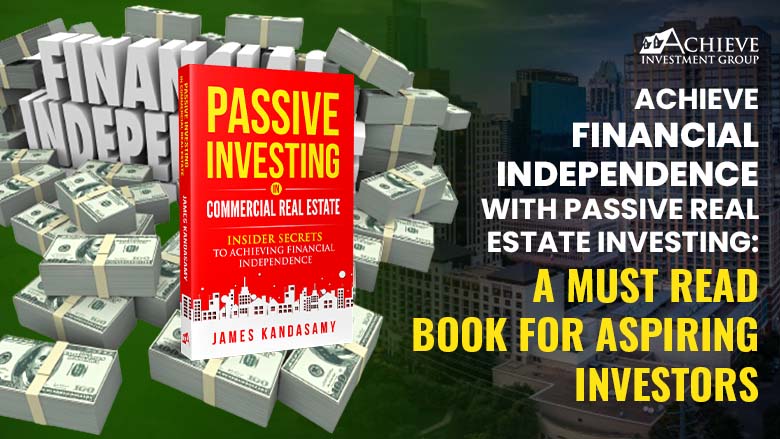Artificial intelligence (AI) technology is now playing a pivotal role in transforming the multifamily housing market. This cutting-edge technology is improving efficiency, maximizing investor returns, reducing costs, and enhancing the overall tenant experience. As such, AI technology is changing the game for Real Estate Investors , passive investors, deal sponsors and operators as well as developers designing and constructing new community developments. Bear in mind, we have no relationship or conflict of interest in presenting these tools, they are simply programs we have witnessed emerging in the space and certainly new AI tools are coming online daily. Your own due diligence in use of any of these tools is advised. CONSTRUCTION AND DEVELOPMENT In construction and development, AI is improving efficiency by streamlining processes such as scheduling, budgeting, and project management. AI-powered construction management platforms such as Smartvid.IO provide easy access to critical insights, enabling developers to make more informed decisions and avoid potential delays. Another type of tool to expect more of is automated design and planning based on tracts of land, and what can be built. Should you build single-unit and ground floor only? Where might parking lots fit? Instead of replacing architects, these technologies can augment efforts and help move projects along faster with inspiration. For instance, one such tool is called ArchiGAN, which is a generative stack for apartment building designs. LEGAL AI technology is also changing the legal landscape for real estate. AI-powered legal services can help property owners and investors streamline their legal documents, such as leases, purchase agreements, and legal due diligence. Newly trained LLMs can even pass the Bar exam, and as an example, “DoNotPay” claims itself as “The World’s First Robot Lawyer”. As a matter of fact, if you are searching for “Best AI Legal Tools 2023”, you will find an emerging industry that can save you money but should not replace your human legal team. However, services such as AI-powered contract review platform LawGeex allow legal teams to spend more time on higher-level work, reducing the time and cost of legal services. Again, for clarification, people and organizations should always consult with a qualified attorney before making decisions based on the information in this post or using any of the tools referenced herein. ANALYSIS AND DECISION MAKING AI technology makes it possible to leverage large amounts of data to gain insights that can inform decision-making. Investing in AI-powered tools like Google’s TensorFlow can provide data-driven insights that can direct decision-making related to rent pricing, marketing strategy, and property operations. Another example is Cody, an AI assistant. Cody is an intelligent AI assistant like ChatGPT, Bard, or GPT4 – with the added benefit of being able to train it on your business, your team, your processes, and your clients with your own knowledge base. Use Cody to support your team, answer questions, help with creative work, troubleshoot issues, and brainstorm ideas. RESEARCH AI is also revolutionizing the research process in the multifamily housing market. AI-powered tools such as AssetSonar can gather and analyze a broad range of data on properties and neighborhoods, including zoning and demographic data. These tools provide investors, operators, and developers accurate and up-to-date information that informs their investments and development decisions. One such example is turning your PDFs into chatbots, then simply asking your PDF questions to get answers summarized and delivered instantly. Some tools you might try are PDF Analyzer, ChattyPDF, or Ask Your PDF. For instance, why scour for details about K1’s when you can let a chatbot explain the intricate details in a simplified, quickly understood format? Or, simply use it for effortless organization and watch your document transform into a structured outline automatically. MARKETING AI technology also plays a significant role in the marketing of multifamily housing offerings. AI-powered chatbots can provide an excellent tenant experience, provide 24/7 support, and answer tenant questions. AI-powered chatbots and tools such as Rentlytics can provide insights into the customer journey and help operators identify the most effective marketing channels. When it comes to executing marketing strategies that include graphics, audio, video, social media and more, it is actually difficult to keep up with so many tools coming online. Every day there are more and more powerful tools, and considering some like Adobe are trained on LLMs that feature copyright protected libraries, it is worth considering where your tools are pulling their “influence” from so you don’t end up drawing off scraped and protected art that can come back to you such as copyrighted works, fonts, etc. LEASING AI technology streamlines the leasing process by reducing the workload of property managers and leasing agents. AI-powered leasing tools such as Leasera reduce friction such as application processes and digital approvals, speeding up the leasing process. AI algorithms can analyze vast amounts of data to develop scoring for tenant applications, even conversing with potential new applicants via chatbots and SMS to ‘nurture’ them along as leads, such as LEA, the AI leasing agent. PROPERTY MANAGEMENT (PROPTECH) AI-powered property management systems can help property managers automate tasks such as maintenance requests and payment bills. Platforms like CBRE provide built-in AI-powered chatbots that can help reduce tenant turnover rates. Property management systems powered by AI such as Rentigo generate automated rent payment reminders to help ensure on-time rent payment by tenants leading to reduced late payments and better cash flow management for property managers. Another way to use it is implementing communications tools such as Fathom, which plugs into ZOOM, Google Meetings, Microsoft Teams and other video platforms to annotate meetings, create transcripts, and even summarize meetings with different speakers noted and highlighted meeting points of importance. Look for more multifamily Proptech tools using AI to: Manage your real estate portfolio Organize your rental property operations Manage rent rolls and finances Manage leases and affordability compliance Communicate effectively with tenants, managers, and investors MORE MORE MORE! There are just so many AI tools coming online, multifamily operators need to experiment and see what will work best for themselves. In multifamily … Read more










